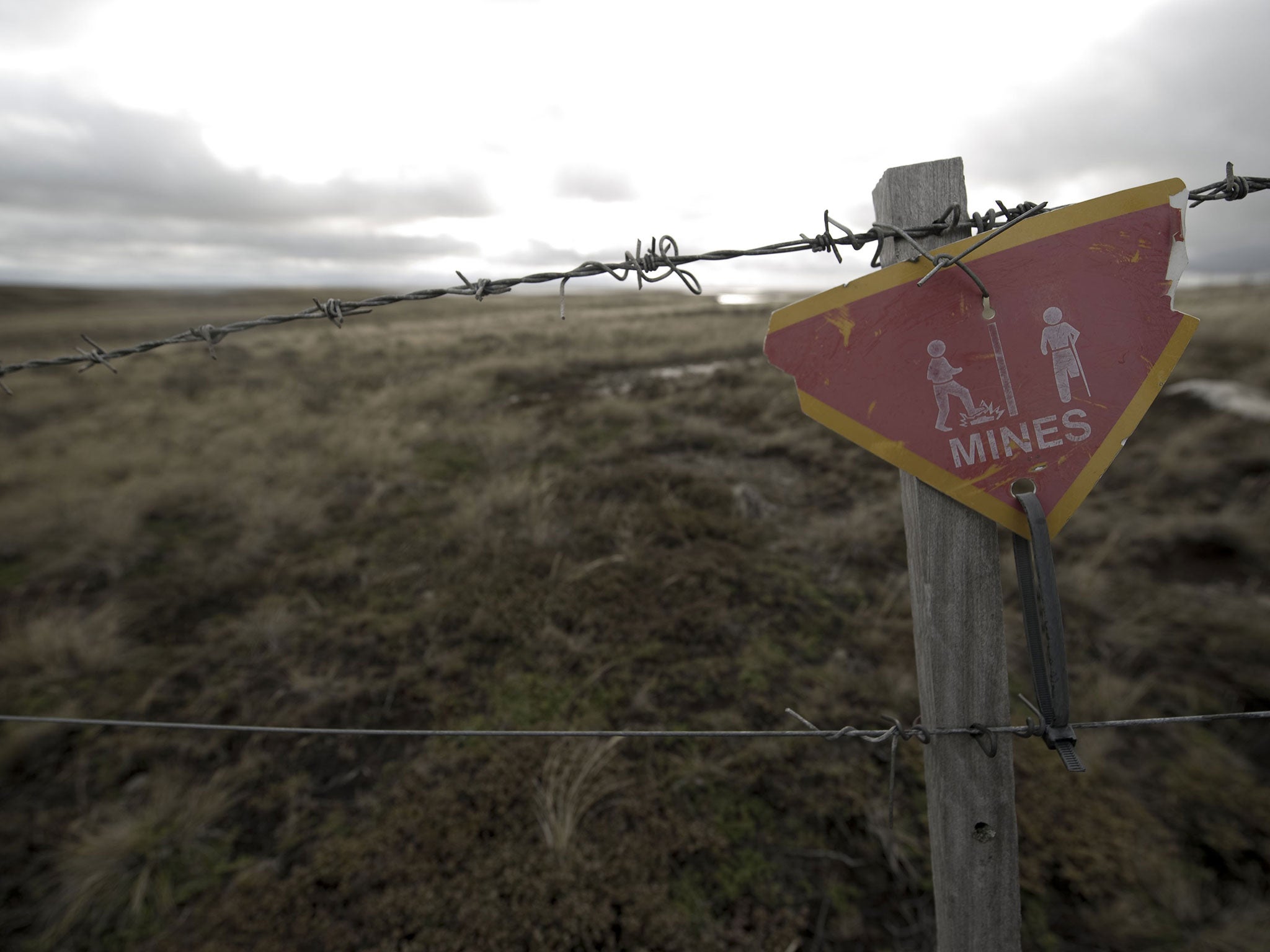UN committee backs Argentina over Falkland Islands
Decision comes despite passionate speeches claiming islanders want to keep things as they are

Your support helps us to tell the story
From reproductive rights to climate change to Big Tech, The Independent is on the ground when the story is developing. Whether it's investigating the financials of Elon Musk's pro-Trump PAC or producing our latest documentary, 'The A Word', which shines a light on the American women fighting for reproductive rights, we know how important it is to parse out the facts from the messaging.
At such a critical moment in US history, we need reporters on the ground. Your donation allows us to keep sending journalists to speak to both sides of the story.
The Independent is trusted by Americans across the entire political spectrum. And unlike many other quality news outlets, we choose not to lock Americans out of our reporting and analysis with paywalls. We believe quality journalism should be available to everyone, paid for by those who can afford it.
Your support makes all the difference.A United Nations’ committee approved a new resolution calling on the UK and Argentina to negotiate a solution to their dispute over the Falkland Islands, essentially favouring Argentina's stance in the long-running feud.
The 24-nation Decolonization Committee passed the resolution by consensus despite passionate speeches from two Falkland Islands representatives who said most islanders wanted to keep things as they are.
The decision showed that the committee members have been largely unmoved by a referendum in the Falkland Islands last year in which more than 99 per cent of voters favoured remaining a British Overseas Territory.
The UK has rebuffed Argentina's calls to negotiate the sovereignty of the south Atlantic islands, saying it is up to people who live there to decide.
Argentinian Foreign Minister Hector Timerman attacked the UK for ignoring dozens of UN resolutions urging the two countries to talk.
“It is imperative that the United Kingdom sits down again at the negotiating table,” Mr Timerman said.
The UK asserted control of the islands by placing a naval garrison there in 1833, but Argentina claims Britain stole the territory.
The Falkland Islands Government is a direct democracy and largely self-governing, although the UK handles its defence and foreign affairs. Excluding the British military and civilian contractors, the territory has a population of about 2,563 people, according to a 2012 census.
Argentina argues that the Falkland Islands dispute is a matter of “sovereignty”, while the UK prefers to refer to “self-determination” by the people.
Mr Timerman pressed Argentina's claims that islanders are an “implanted” population, kept stagnant with strict immigration policies for the purpose of occupying territory that does not belong to them.
Roger Edwards, a member of the Falklands Islands Legislative Assembly, said such claims were false. He said he and many other islanders come from families who have been there for generations and “have a strong wish to be master of our own affairs”.
“We are confident in our future,” he said. “The only inhibition to our development is the continuing spiteful aggression of our people by Argentina.”
The British Mission to the UN criticized the committee for ignoring the outcome of last year's referendum.
“It is disappointing that once again the C24 [the Decolonization Committee] has not respected the clear and democratic expression of the Falkland Islanders' wishes and continues to describe the Falkland Islands' constitutional relationship with the UK as a ‘colonial situation,’” the mission said.
AP
Join our commenting forum
Join thought-provoking conversations, follow other Independent readers and see their replies
Comments